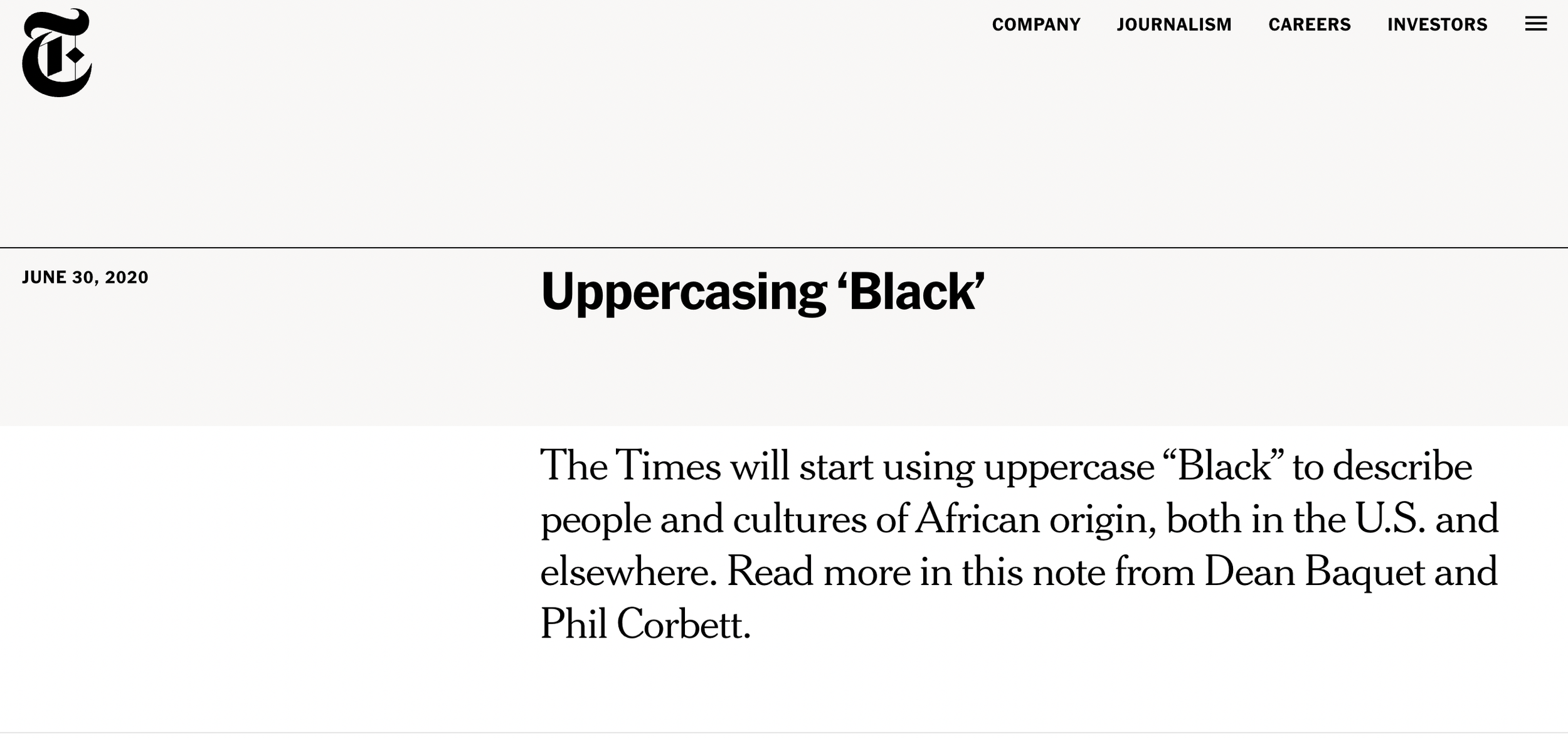On This Day in Literary History: The New York Times Decides to Capitalize the B in Black
It was June 30, 2020 when the New York Times made the official announcement. Starting on that day, executive editor of the Times, Dean Baquet, wrote in a clear missive, that the paper would now use the uppercase B when writing about Black people and Black culture.
He wrote, “ …We’ve decided to adopt the change and start using uppercase “Black” to describe people and cultures of African origin, both in the United States and elsewhere. We believe this style best conveys elements of shared history and identity, and reflects our goal to be respectful of all the people and communities we cover.”
The Road to Respect on the Page
While I cannot claim that I am the reason that the New York Times, the Associated Press, and most other mainstream publications in the United States finally made the change to capitalize the letter B in 2020, I had been very vocal about my indignation at being referred to in the lowercase.
Basically my argument came down to this; black with a lower case “b” is a color, whereas Black with a capital “B” refers to a group of people whose ancestors were born in Africa, were brought to the United States against their will, spilled their blood, sweat and tears to build this nation into a world power and along the way managed to create glorious works of art, passionate music, scientific discoveries, a marvelous cuisine, and untold literary masterpieces.
As a wordsmith myself, I could not understand how any editor, who understands the significance of an errant comma or a “there” instead of a “their,” could sanction the use of a lower case “b” to signify a culture of people. Latinos had their capital “L,” Asians got their “A,” Native Americans have both the “N” and the “A” in capital letters, but Black people couldn’t command the same respect?
As a Black journalist and writer, I hated being forced to downgrade my people on the page. So, I wrote and Op-Ed about it, for The New York Times, in 2014. In the article I made mention of the fact that W.E.B. DuBois fought the same fight to get The Times and other newspapers and journals to capitalize the N in Negro. It took seven years after he launched his campaign to see the change made, so I suppose I shouldn’t have been surprised that it took six years and a global racial uprising to earn the capital B in Black.
Black Lives Matter on the Page
I am so happy to be looking back on this three-year anniversary of the change to Capital B. I’m truly in awe seeing how much time and effort I spent trying to get this small bit of justice served. As a writer, words are my weapons, my currency, and my loves, so this fight was both personal and professional. I am thrilled that I no longer have to explain to copyeditors and editors why I capitalize the B in Black in my articles and all of my books. I also like to correct other writers who don’t capitalize the B, knowing I now have the “law” on my side. And most importantly, I’m grateful that future generations of Black men, women and children will never have to see themselves referred to in the lowercase.
Happy Capital B Day!


